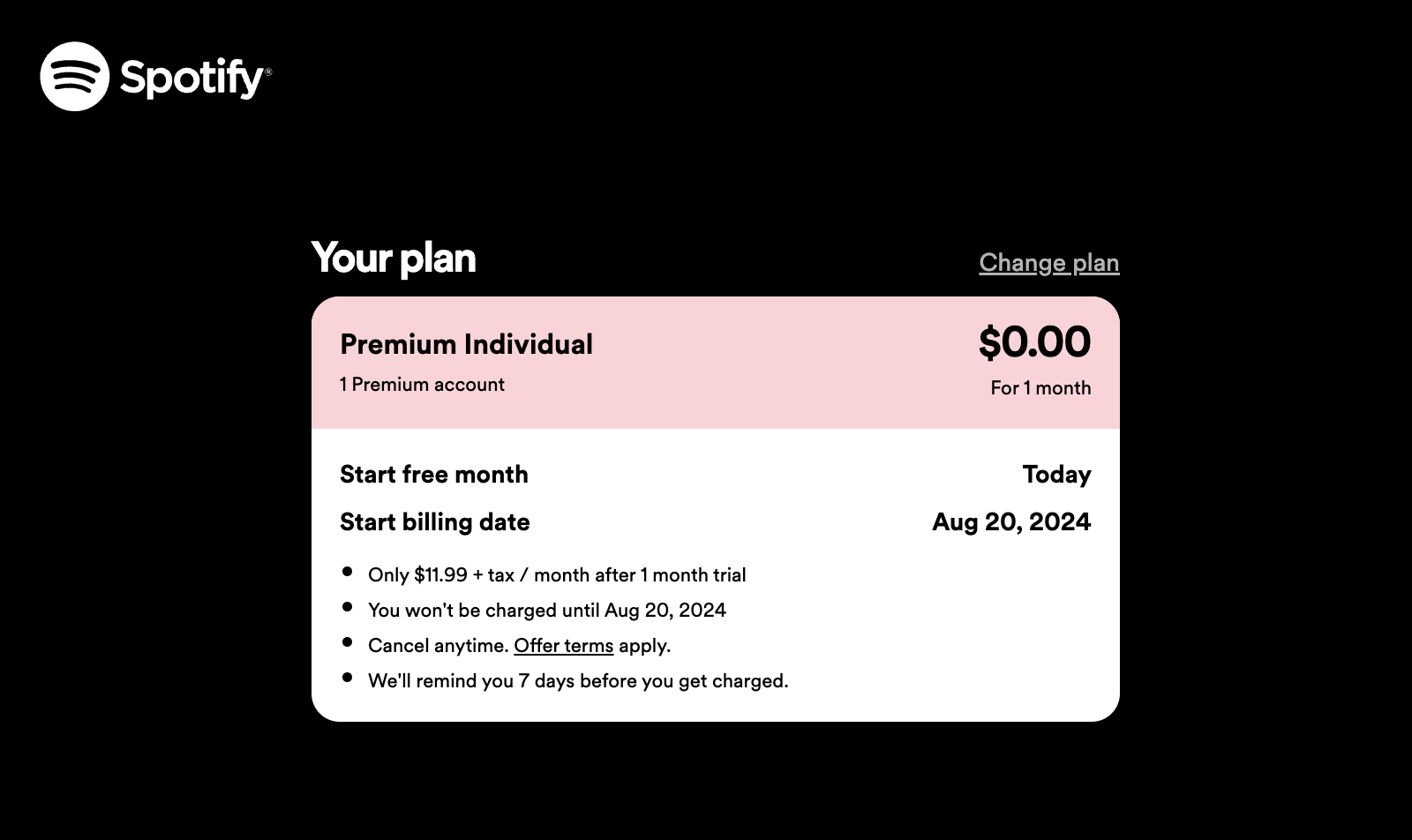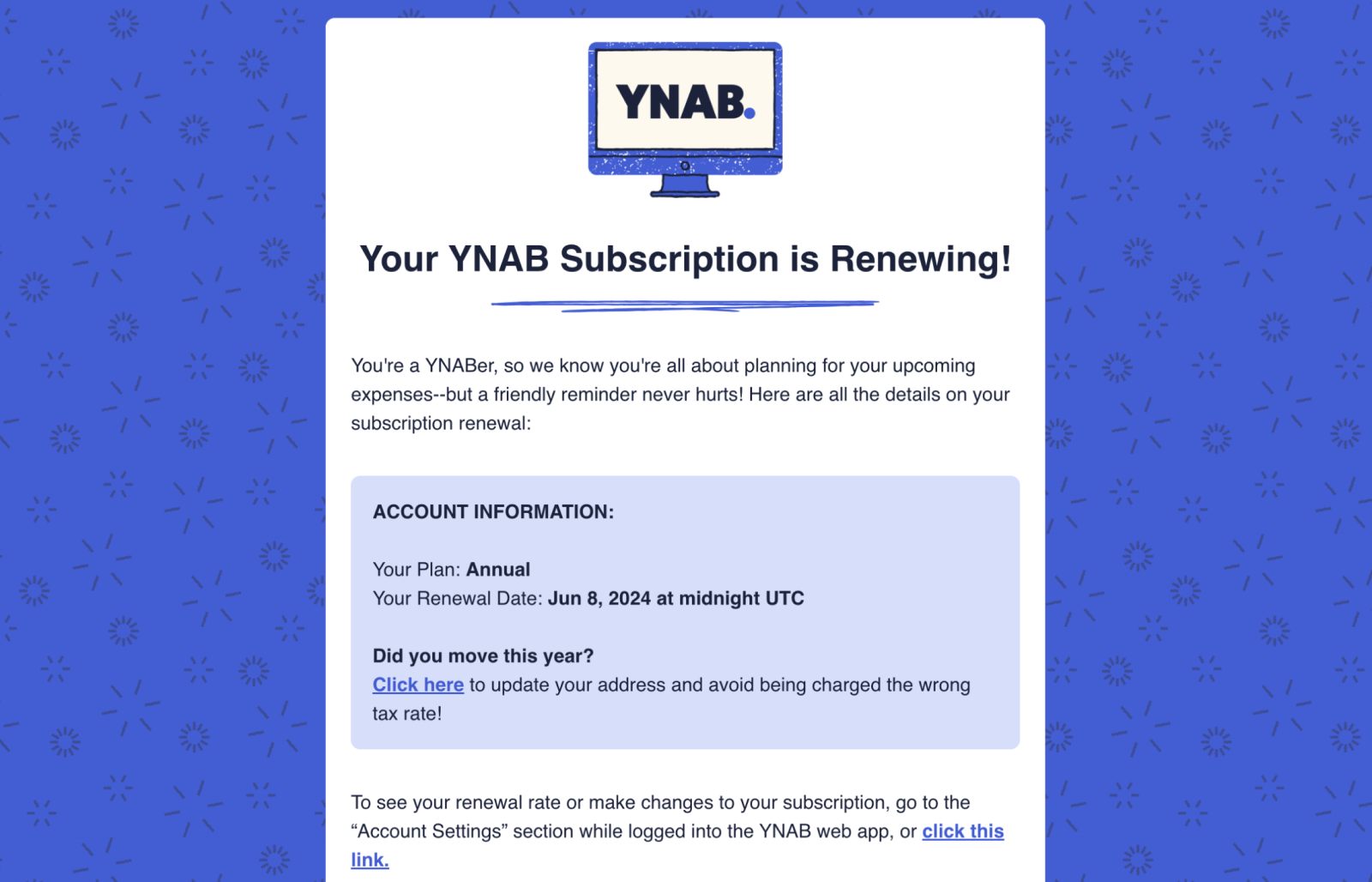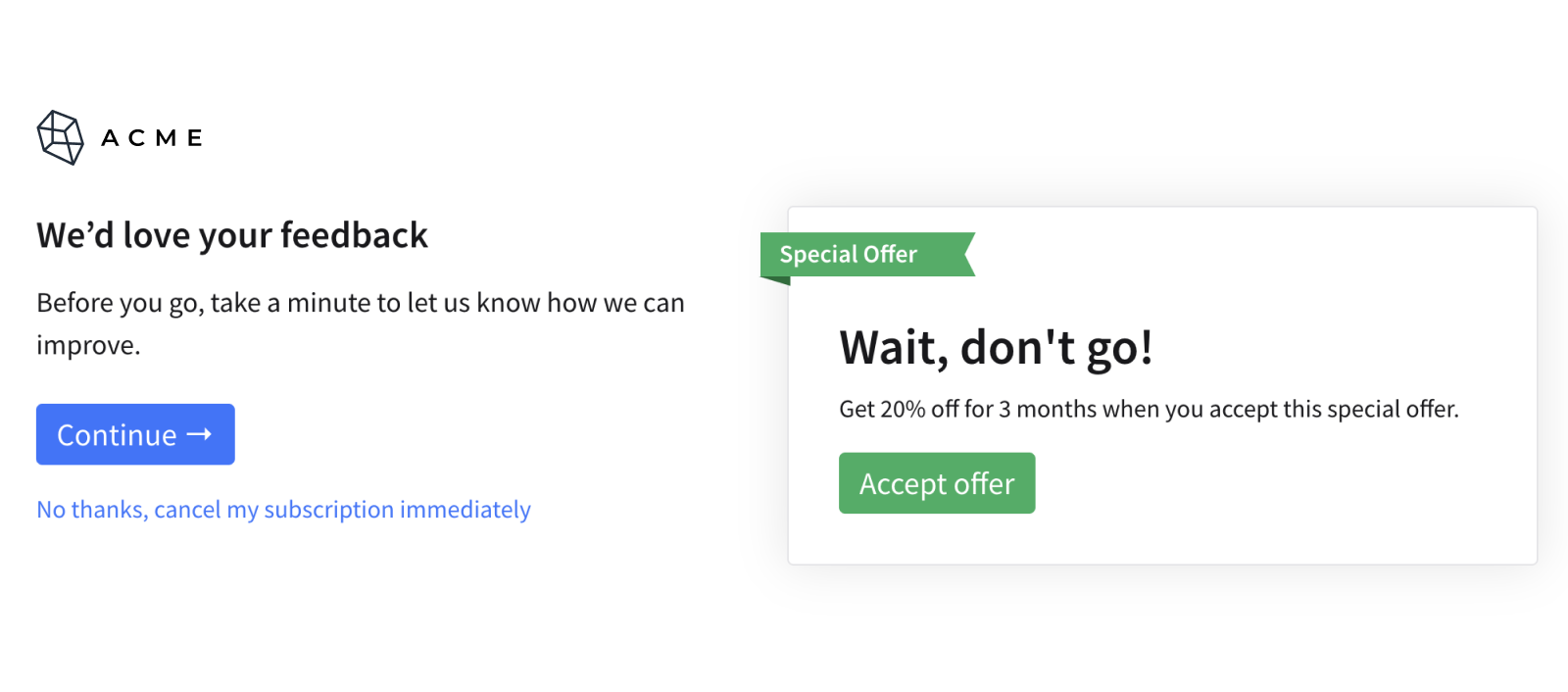How to Comply with California’s “Click to Cancel” Automatic Renewal Law

California’s click-to-cancel automatic renewal law (ARL) is consumer-protection legislation regulating aspects of subscription billing and online cancellation.
If your business offers subscription services to consumers in California, the law applies to you (with some exceptions).
Enacted in 2010 and amended most recently on September 24, 2024, California’s automatic renewal law is “the most comprehensive ‘click to cancel’ legislation in the nation,” according to the 2024 amendment’s author.
Compliance with the ARL means meeting certain requirements regarding:
disclosure of subscription terms
consent to automatic renewal agreements
post-signup acknowledgements and notifications
subscription cancellation
This post offers guidance to B2C subscription-based businesses in SaaS, digital media and ecommerce to help you maintain compliance with the ARL. Recent additions from the 2024 “click to cancel” amendment are called out in each section.
Disclaimer: The guidance provided herein is for informational and educational purposes only and does not constitute legal advice. Please consult a legal/compliance representative when implementing subscription compliance policies and practices.
End compliance confusion. Get one-on-one guidance from our cancellation experts. It’s free.
Overview of the ARL
California’s automatic renewal law (California Business and Professions Code § 17600) protects consumers from being enrolled in subscription billing plans without explicit consent, and is among the country’s strictest automatic renewal laws.
Exemptions
The California automatic renewal statutes do not apply to the following businesses:
Those regulated by the CPUC, the Federal Communications Commission, the Federal Energy Regulatory Commission, the Department of Insurance, or the Bureau of Electronic and Appliance Repair
Alarm company operators; banks, bank holding companies and affiliates/subsidiaries; credit unions or licensed financial institutions
“Any service provided by a business or its affiliate where either the business or its affiliate is doing business pursuant to a franchise issued by a political subdivision of the state or a license, franchise, certificate, or other authorization issued by the California Public Utilities Commission (CPUC).”
No, the law applies only to subscriptions offered to consumers (B2C), not businesses. Section 17601 of the code defines a consumer as “any individual who seeks or acquires, by purchase or lease, any goods, services, money, or credit for personal, family, or household purposes” (emphasis added).
Key provisions
We’ll go into more detail below, but in summary, the legislation dictates:
When offering subscriptions, businesses must present “clear and conspicuous” terms and obtain “affirmative consent” to subscription billing plans
Subscription terms must be repeated in a post-transaction acknowledgement that can be retained by the customer, e.g. an email
Businesses must provide a “cost-effective, timely and easy-to-use” cancellation mechanism, such as a toll-free phone number or e-mail address
Notices must be sent regarding any material changes in terms

Amendments in 2017 and 2021 added requirements regarding online cancellation and free trials:
Businesses must allow online cancellation for California subscribers who signed up online
When obtaining affirmative consent, subscription terms must include information about any promotional or discounted price that applies for a limited amount of time
Businesses must send reminder notices before renewal under certain conditions
The 2024 “click to cancel” amendment requires that businesses offer an online click-to-cancel option for any users who signed up online. It makes additional requirements for subscription signup, reminders and cancellation. Highlights:
Signup - Businesses are required to obtain “express affirmative consent” to subscription billing terms, and retain verification of this consent for at least three years or one year after the contract ends, whichever is longer
Notifications - Businesses are required to send an annual reminder for active subscriptions and before any fee changes take effect
Cancellation - Subscribers must be allowed to cancel in the “same medium” used to sign up for the subscription or in which the consumer is accustomed to interacting with the business
New provisions from the 2024 amendment apply to contracts “entered into, amended, or extended” on or after July 1, 2025.
Now let’s dig into how the ARL affects each aspect of subscription billing from signup to cancellation.
Subscription regulations are constantly in flux. Subscribe to stay up-to-date on the latest compliance developments, churn-prevention strategies and more.
Subscription signup and the ARL
California’s automatic renewal law requires that businesses offering subscription billing agreements follow certain guidelines to ensure that consumers understand subscription terms and are not enrolled without their explicit consent.
In summary, when offering a subscription, businesses must:
Present offer terms in a “clear and conspicuous” manner before fulfillment
Obtain “affirmative consent” to subscription terms
Send an acknowledgement in a retainable form, e.g. an email
The 2024 amendment additionally stipulates that businesses:
Must not share confusing or contradictory information that obstructs the consumer’s ability to provide affirmative consent
Must retain verification of the consumer’s affirmative consent for at least three years, or one year after the contract ends, whichever is longer
Must not misrepresent any “material fact” related to the transaction, including subscription terms
Clear and conspicuous disclosures
The law requires that the terms of automatic renewal agreement be displayed in a “clear and conspicuous” manner and specifies terms which must be supplied:
That the subscription will continue until canceled by the customer
A description of the cancellation policy
The amount that will be charged
That the amount may change (if relevant), and the amount to which it will change, if known
When the subscription will expire, or if it is continuous (unless the length is chosen by the consumer)
Details of a minimum purchase obligation, if any
The 2024 amendment to California's ARL stipulates that before confirming the consumer’s billing information, the business must disclose:
That the subscription will renew automatically unless canceled by the customer
The length and additional terms of the renewal period
The amount and frequency of charges
Method(s) of cancellation - If sent electronically, a link or other “reasonably accessible” electronic method
Contact info for the business
According to California’s ARL, clear and conspicuous means “in larger type than the surrounding text, or in contrasting type, font, or color to the surrounding text of the same size, or set off from the surrounding text of the same size by symbols or other marks, in a manner that clearly calls attention to the language. In the case of an audio disclosure, [it] means in a volume and cadence sufficient to be readily audible and understandable.” (Cal. Bus. & Prof. Code § 17601)
Affirmative consent
Businesses must obtain “affirmative consent” to automatic renewal, including terms about any promotional or discounted price for a limited period of time.

The ARL specifies that, if affirmative consent is not obtained, the goods or services “shall for all purposes be deemed an unconditional gift to the consumer.”
Acknowledgements
Businesses must also provide an acknowledgement in a form that can be retained by the consumer. Similar to the signup terms, this acknowledgement must disclose:
That the subscription will renew automatically unless canceled by the customer
The length and additional terms of the renewal period
Method(s) of cancellation - If sent electronically, a link or other “reasonably accessible” electronic method
Contact info for the business
How to cancel before being charged, if a free trial
Renewal and other notices
Amendments to the ARL added a requirement to send renewal notices under two conditions:
The subscription term is one year or longer
The subscription contains an expiring free trial or initial discount period longer than 31 days

If the subscription term is one year or longer, notices must be sent 15-45 days before the renewal date reminding customers that their plans will automatically renew unless canceled.
For subscriptions with an expiring trial or discount period, a similar notice must be sent 3-21 days before the expiration of the applicable period.
In the case of a material change in terms, businesses must send a “clear and conspicuous” notice, plus how to cancel.
The 2024 amendment requires businesses to send an annual reminder about any automatic subscription renewals in the “same medium” used to sign up for the subscription or in which the consumer is accustomed to interacting with the business.
The reminder must disclose the product or service to which the subscription applies, the frequency and amount of charges, plus how to cancel.
Additionally, businesses must provide a notification of any subscription fee changes 7-30 days before the change takes effect. This communication must provide a “clear and conspicuous” notice of the fee change, as well as how to cancel (in a form that can be retained by the consumer).
Subscription cancellation and the ARL
Like the FTC’s click to cancel rule, the California ARL makes easy cancellation a key requirement.
The ARL dictates that, if offering subscription billing, a business must provide a “cost-effective, timely, and easy-to-use mechanism for cancellation,” such as a toll-free phone number or e-mail address. An automated cancellation flow is also an option.
The 2024 “click to cancel” amendment stipulates that California consumers must be allowed to cancel in the “same medium” they used to sign up for the subscription or in which they are accustomed to interacting with the business.

Online cancellation for customers who enrolled online
If customers are allowed to sign up online, they must be allowed to cancel “immediately” and “exclusively” online, either by clicking a prominent button or link within a customer billing portal/account/settings page, or by sending a pre-formatted cancellation email message.
By “immediately,” the law does not prohibit requiring the user to login to access the cancellation option, although an offline option must be provided.
The law goes on to specify that consumers must be allowed to cancel “at will” and without the business “engaging any further steps that obstruct or delay” cancellation.
The 2024 amendments clarify that a business’s online cancellation process may present incentives to stay or provide information about the effects of cancellation, provided a “click to cancel” (or similarly worded) link/button is “prominently,” “continuously” and “proximately” displayed. If the user utilizes the direct link or button, the business must promptly process the cancellation without further delay.
Online cancellation flows often require customers to move through several steps—e.g. a churn survey, acknowledgements, discount offers and other deflections—before finalizing cancellation. With the new regulations taking effect in 2025, the cautious course for businesses is to provide an instant cancel option to consumers in California and other jurisdictions with similar ARL requirements and a standard cancellation flow to other customers.

On the instant cancellation page you’ll forgo multiple steps. Instead, provide a single page with an instant cancel button and retention offers, if desired. You can also ask (though not require) the customer for feedback, providing a link to an exit survey or your complete flow.

When allowing cancellation by email, businesses must, as dictated by the law, provide an “immediately accessible termination email formatted and provided by the business that a consumer can send to the business without additional information.”
The 2024 amendments make additional requirements for phone-based cancellation. If providing the option to cancel by phone, businesses must answer calls “promptly during business hours” and not “obstruct or delay” a customer’s cancellation.
The business may present the customer with an incentive to stay or information about the effects of cancellation, but only after informing the consumer that they may complete cancellation at any time by simply stating their intent to cancel, and the business shall promptly process the cancellation without obstruction or delay.
If the customer left a voicemail, the business must process the cancellation or return the call within one business day.
End compliance confusion. Get one-on-one guidance from our cancellation experts. It’s free.
Get compliant today with ProsperStack
With California’s click to cancel legislation coming into effect, providing a simple cancellation process is more than a best practice—it’s the law. Let ProsperStack show you how easy it is to roll out a compliant cancellation flow that leverages powerful insights, reduces churn and promotes brand loyalty.
Trusted by brands like Nutrafol, Nestle and Hootsuite, ProsperStack Retain is churn-busting cancellation flow software with robust reporting, A/B testing and AI offer optimization. And because we integrate with your subscription billing platform, you can be up and running with just a few lines of code.
Setup is simple:
Connect your subscription platform — Connect Stripe, Chargebee, Recurly, Paddle and more to fully automate subscription cancellation, pauses, trial extensions, coupons and more.
Embed into your site — Seamlessly integrate your new cancellation flow directly into your product with minimal development. Start with our cancellation template based on best practices and customize to your needs by mixing and matching reusable components.
Learn from churn — Collect actionable data from customers who cancel. Make changes at any time with just a few clicks.
Reduce churn with alternatives to cancellation — Automatically present coupons and other incentives to retain customers based on their answers and segments. Optimize with powerful A/B testing, AI Autopilot, customer segmentation and robust reporting.
Analyze and win back — Use the insights you've gathered to improve your product and re-engage churned customers.
Upgrade your cancel button today and start retaining more of your most valuable customers.


